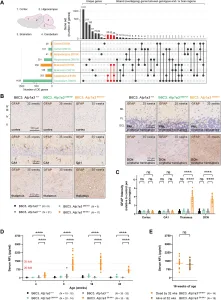Age-Related Macular Degeneration: A Global Health Concern
Age-related macular degeneration (AMD) is a significant global health issue. Recent estimates suggest that around 200 million individuals worldwide are affected by this condition. AMD primarily impacts central vision, leading to blurriness and other visual impairments that can significantly affect daily life.
Understanding Age-Related Macular Degeneration
AMD is a progressive eye condition that affects the macula, the central part of the retina responsible for sharp, detailed vision. The macula allows us to perform tasks that require focused vision, such as reading, driving, and recognizing faces.
Types of AMD
- Dry AMD: This is the more common form, characterized by the presence of drusen (small yellow deposits) under the retina. Vision loss typically progresses slowly.
- Wet AMD: This form is less common but more severe. It involves the growth of abnormal blood vessels under the retina, which can leak fluid and blood, leading to rapid vision loss.
Symptoms of AMD
The symptoms of AMD can vary depending on the type and severity of the condition. Common symptoms include:
- Blurry or distorted central vision
- Difficulty seeing in low light
- Reduced color sensitivity
- The appearance of a dark or empty area in the center of vision
Risk Factors for AMD
Several factors can increase the risk of developing AMD, including:
- Age: AMD is more common in people over the age of 60.
- Family history: Having a family member with AMD increases your risk.
- Smoking: Smoking is a major risk factor for AMD.
- Race: Caucasians are more likely to develop AMD than other races.
- Cardiovascular disease: Conditions that affect the heart and blood vessels can increase the risk of AMD.
Diagnosis and Treatment
AMD is typically diagnosed through a comprehensive eye exam, including tests to assess visual acuity and examine the retina. While there is currently no cure for AMD, various treatments are available to slow the progression of the disease and help manage symptoms.
Treatment Options
- Lifestyle modifications: Quitting smoking, eating a healthy diet, and exercising regularly can help reduce the risk of AMD progression.
- Nutritional supplements: Certain vitamins and minerals, such as vitamin C, vitamin E, lutein, and zeaxanthin, may help slow the progression of dry AMD.
- Anti-VEGF injections: These injections are used to treat wet AMD by blocking the growth of abnormal blood vessels in the eye.
- Laser therapy: This treatment can be used to destroy abnormal blood vessels in wet AMD.
Final Overview
Age-related macular degeneration is a prevalent condition affecting millions worldwide. Understanding the risk factors, symptoms, and available treatments is crucial for managing this condition and preserving vision. Regular eye exams and early intervention are essential for individuals at risk of or experiencing symptoms of AMD.




+ There are no comments
Add yours